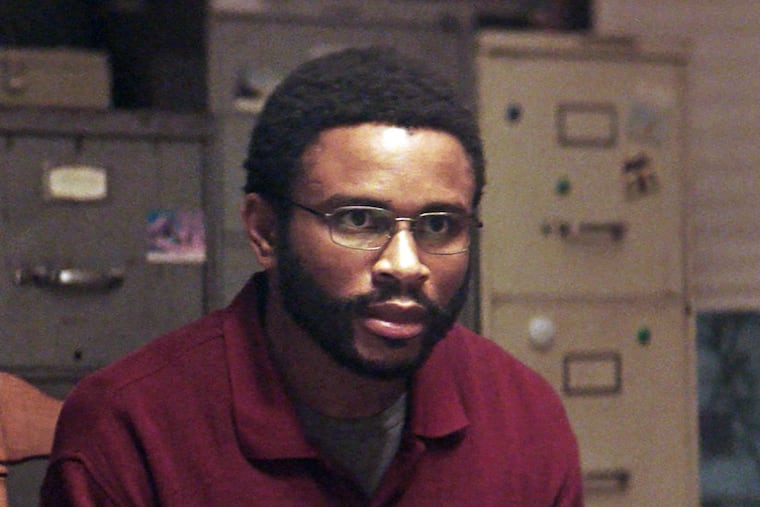'Crown Heights': Nnamdi Asomugha stars in this quiet crusade for justice
'Crown Heights' is the true story a man who devotes his life to freeing a friend wrongly imprisoned for murder.

Somewhere between Moonlight and HBO's The Night Of is Crown Heights, a movie that takes an unusually lyrical approach to the story of a black man who spent 20 years in jail for a crime he did not commit.
It's less a story of a justice crusade, though, than an account of extraordinary brotherly love. When Colin Warner (Lakeith Stanfield) is convicted of murder after a sham investigation and tragicomic trial in 1980, his astounded friend Carl King (former Eagle turned actor Nnamdi Asomugha) refuses to accept the outcome, and devotes the next 20 years to freeing Warner.
Writer-director Matt Ruskin splits the movie into narrative streams — Warner's deterioration of spirit in prison, and King's relentless efforts to raise money for appeals, coupled with his own decisive investigation into the murder.
The facts of the case warrant outrage, but Crown Heights takes a measured, almost melancholy approach to the story of Warner's arrest and conviction — the movie isn't shouting about the way the system is rigged against the poor, but reminding us, with a sigh.
The police are sloppy and indifferent, almost inexplicably so. They actually expend more energy doing bad police work than it would have taken to solve the case properly. They find the right trigger man (it's a simple revenge killing), but also seek to link Warner to the crime as a getaway driver — badgering a juvenile witness to pick a photo out of a book of mug shots.
In fact, there was no accomplice, no getaway driver — not even a car, and Warner had no connection to either the shooter or the victim. None of this seems to matter to the police or the prosecutor or the jury. Even after the key witness' credibility collapses on the stand, the jury convicts Warner, who is dragged, dumbfounded, to jail. (In real life, the first trial ended in a hung jury, due to obvious problems with the eyewitness testimony.)
Ruskin chooses an offbeat, impressionistic way to dramatize Warner's time in prison — it's light on dialogue and exposition, heavy on artful framing and evocative music (the effective score is by Mark Degli Antoni).
This is interlaced with the story of King's Sisyphean efforts to file appeals on behalf of his friend — at one point, he hires a celebrity lawyer, who proves to be less competent than the public defender. (In real life, King hired civil-rights activist William Kunstler, whose character becomes a composite here.)
King takes a job in the legal system to learn its inner workings, and finally locates a willing and committed lawyer (Bill Camp, coincidentally of The Night Of), but even so, the case goes nowhere until King commences his own investigation of the original crime.
It's a quietly inspiring portrait of selflessness, although not always a stirring one. The movie has a muted tone that tamps down emotions, and the acting is intentionally low-key throughout. Stanfield has barely more dialogue than he had in Get Out.
Asomugha gives an admirably subtle performance — the former football player was no doubt eager to make a big impression in his first big film role, but his work is careful, disciplined, and in keeping with the tone of the movie.